Sleeping Disorders

Find what you are looking for
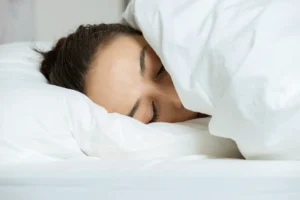
Understanding How Trazodone Can Help With Sleep Disorders
Insomnia is no joke. Night after night of lying awake, mind racing and muscles tense, watching the minutes tick by on the bedside clock. Feeling exhausted upon waking after finally drifting off just before sunrise. Relying on coffee and energy drinks to drag yourself through the day in a mental fog. Dreading going to bed…
Read More
Sensory Processing Disorder and Sleep: Resolving the Struggles for Restful Nights
Do you struggle to fall asleep or stay asleep throughout the night? Do little sounds or movements that go unnoticed by others keep you wide awake? If this sounds familiar, you may have sensory processing disorder (SPD). At The Snore Centers, we know that living with SPD presents daily challenges. One major area affected is…
Read More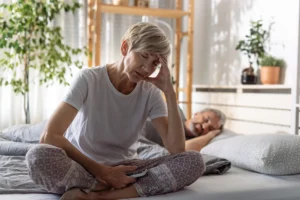
Understanding Anxiety Sleep Disorder
At The Snore Centers, we understand that anxiety and stress can profoundly impact your sleep. Racing thoughts and worries at bedtime can prevent you from falling asleep and staying asleep throughout the night. This anxiety sleep disorder involves insomnia and sleep deprivation due to an overactive mind and concerns that are difficult to shut off.…
Read More
Understanding DSM-5 Sleep Disorders and How We Can Help
An estimated 50-70 million Americans suffer from some type of sleep disorder, according to the American Sleep Association. Sleep disorders can significantly impact your daily life, leaving you fatigued, impaired, and at risk for other medical conditions. At The Snore Centers, we like to make sure that you understand what these sleep disorders are before…
Read More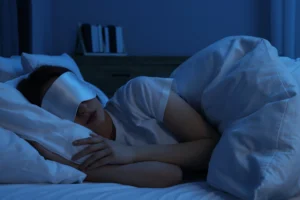
Get Your Zzz’s: Understanding ICD-10 Codes for Sleep Disorders
At The Snore Centers, we know that getting a good night's sleep is vital for your health and wellbeing. But for many people, sleep disorders like insomnia, sleep apnea, and narcolepsy make that difficult. This is where ICD-10 codes come in. ICD-10 codes are an international standard used by providers and insurers to classify diseases,…
Read More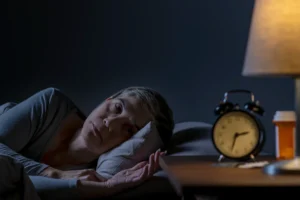
The Truth About Delayed Sleep Phase Disorder
Do you consider yourself a night owl? Do you struggle to fall asleep at a “normal” bedtime, only to feel wide awake late into the night? Many people feel most alert and energetic in the evening hours. But for some, a tendency to go to bed late and sleep in can start to negatively impact…
Read More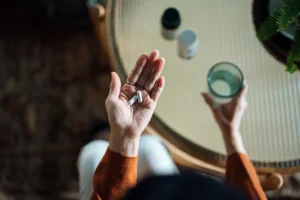
Sleep Disorders Medications
At The Snore Centers, we understand that sleep disorders can significantly impact quality of life. From excessive daytime sleepiness to insomnia, sleep disturbances affect millions of Americans. Thankfully, modern medicine provides safe and effective pharmaceutical options to help patients achieve restful slumber. Our experienced providers stay current on the latest sleep disorder medications to design…
Read More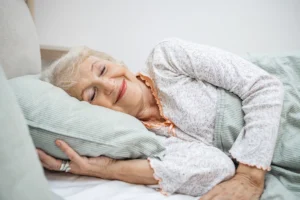
Elderly Sleep Disorders
Causes, Impacts, and Treatments Getting adequate, high-quality sleep is essential at any age. However, seniors face increased risks for various sleep disturbances that can significantly impair health and quality of life. At The Snore Centers, our experienced providers specialize in diagnosing and resolving sleep disorders in older adults. We offer a full range of testing…
Read More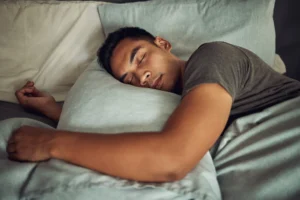
Paroxysmal Nocturnal Dyspnea
Causes, Symptoms, and Treatments Paroxysmal nocturnal dyspnea (PND) is a condition characterized by sudden attacks of severe shortness of breath and coughing that occur at night. This distressing symptom can significantly disrupt sleep and reduce quality of life. At The Snore Centers, our expert providers are well-versed in properly diagnosing and treating this concerning complaint.…
Read More
Neurologists for Sleep Disorders
Expert Care for Restful Nights Sleep disorders can significantly impact quality of life, causing excessive daytime fatigue, work performance issues, relationship conflicts, and more. Difficulty sleeping takes a toll on both physical and mental health. At The Snore Centers, our providers specialize in accurately diagnosing and effectively treating the full range of sleep disorders. Root…
Read More
Melatonin for REM Sleep Disorder
At The Snore Centers, we recognize that abnormal REM sleep can significantly disrupt restful nights. Our board-certified providers stay up-to-date on the latest research for treating conditions like REM sleep behavior disorder (RBD) to help patients reclaim deep, restorative sleep. In this comprehensive guide, we’ll explore emerging evidence on using melatonin to manage RBD and…
Read More
Sleep Disorder Narcolepsy
Overwhelming Daytime Drowsiness At The Snore Centers, we recognize that sleep disorders like narcolepsy can significantly impact patients’ quality of life. Our providers are experts in diagnosing and treating sleep conditions to help patients regain control of their health. In this comprehensive guide, we’ll explore the symptoms, causes, diagnosis and treatments for narcolepsy to empower…
Read More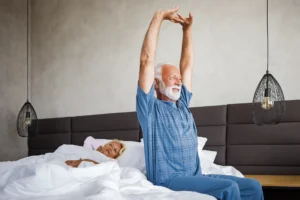
REM Sleep Behavior Disorder
Understanding Symptoms, Causes, and Management of Dream-Enacted Actions You drift off to sleep each night expecting peace and quiet. But suddenly your rest becomes restless as you act out vivid, violent dreams by kicking, punching, yelling or even getting out of bed. You awaken confused, worried you may have hurt yourself or your bed partner…
Read More
Sleep Disorders Psychology
A Comprehensive Look into the Mind's Role in Sleep Health Sleep is a vital human function that allows our minds and bodies to recharge and restore. However, many people suffer from disorders that disrupt their sleep quality and daytime functioning. Sleep disorders involve not just physical symptoms, but also complex psychological and behavioral factors. Understanding…
Read More
Sleep Apnea Disorder: What You Need to Know
Causes, Symptoms, and Modern Treatment Options Do you wake up feeling exhausted, even after what seemed like a full night's sleep? Do you struggle with loud snoring, restless sleep, or abrupt breathing pauses as you slumber? If this sounds familiar, you may be one of the estimated 22 million Americans suffering from sleep apnea. This…
Read More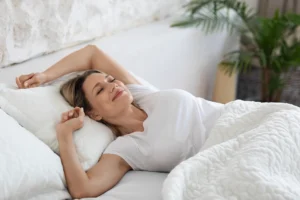
Hypopnea vs. Bradypnea
The Differences, Causes, and Implications for Sleep and Respiratory Health Breathing is an automatic process that most people do not consciously think about. However, abnormal respiratory patterns can be an important indicator of underlying health conditions. Understanding key differences between respiratory abnormalities like hypopnea and bradypnea is crucial not only for accurate diagnoses but also…
Read More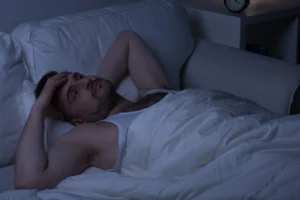
Circadian Rhythm Sleep Disorders
Causes, Symptoms, and Innovative Treatment Options for Sleep-Wake Disruptions Circadian rhythm sleep disorders (CRSDs) refer to a group of sleep disturbances associated with misalignments between a person's internal biological clock and the external 24-hour day-night cycle. Our internal body clocks or circadian rhythms regulate various physiological processes and behaviors, including the timing of sleep. Disruptions…
Read More
Apnea-Hypopnea Index
Understanding Sleep Apnea Severity Sleep apnea is a common sleep disorder characterized by repeated pauses in breathing during sleep. These breathing pauses, called apneas and hypopneas, can last 10 seconds or longer and occur 5-30+ times per hour. To measure sleep apnea severity, sleep specialists use a key metric called the Apnea-Hypopnea Index (AHI). The…
Read More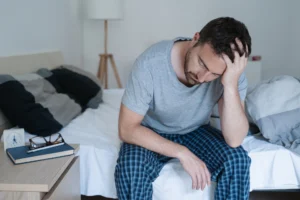
Hypopnea vs. Hypoventilation: Understanding Sleep Disorders
Sleep-disordered breathing encompasses various respiratory disturbances that disrupt normal ventilation and oxygenation during sleep. Two common forms - hypopnea and hypoventilation - share some characteristics but have important differences in their underlying mechanisms and impacts on health. What is Hypopnea? Hypopnea refers to an abnormal shallow breathing event lasting at least 10 seconds with a…
Read More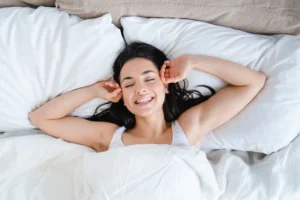
Obstructive Sleep Apnea-Hypopnea Treatment
Obstructive sleep apnea-hypopnea syndrome (OSAHS) involves repetitive collapse of the upper airway during sleep, leading to reduced or paused breathing. These respiratory events disrupt normal sleep architecture and decrease oxygen levels. Effective treatment is important for managing symptoms and mitigating increased risks for hypertension, heart disease, diabetes, and stroke. This article provides an overview of…
Read More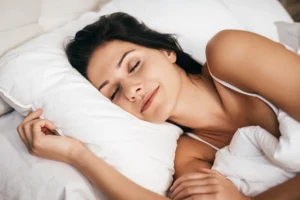
Rera vs Hypopnea: A Guide to Respiratory Event Classification
Sleep disordered breathing involves intermittent reductions in airflow or respiratory effort during sleep. These disturbances are characterized as apneas, hypopneas, or respiratory effort-related arousals (RERAs). While hypopneas and RERAs share some similarities, there are key differences in how they are defined and identified. Understanding these distinctions is important for accurately diagnosing and treating sleep-related breathing…
Read More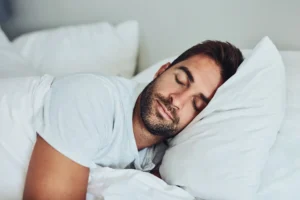
Clear Apnea vs Hypopnea: Understanding Sleep Disordered Breathing Events
Sleep disordered breathing refers to respiratory conditions that cause abnormal breathing patterns during sleep. The most common types of disordered breathing events are apneas and hypopneas. Apneas involve complete cessation of airflow for 10 seconds or longer, while hypopneas are partial reductions in airflow of at least 30% for 10 seconds or more. Understanding the…
Read More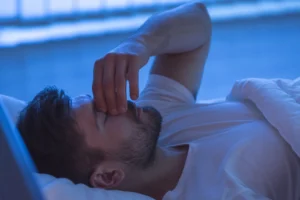
Central Hypopnea Demystified: Key Insights and Management Strategies
Central hypopnea is a type of sleep-disordered breathing characterized by shallow or decreased breathing during sleep. It is a form of sleep-related hypoventilation and belongs to a spectrum of sleep-related breathing disorders that also includes the more widely known condition, obstructive sleep apnea (OSA). Absence or Diminished Respiratory Effort Central hypopnea involves a reduction in…
Read More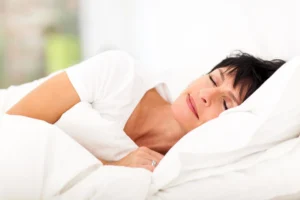
Hypopnea Treatment: Expert Guide to Managing Hypopnea for Restful Sleep
Difficulty breathing during sleep, or sleep-disordered breathing (SDB), prevents restorative rest. Among SDB conditions, hypopnea causes frequent disruptive arousals and impaired sleep quality. If left untreated, ongoing hypopnea escalates health risks of hypertension, stroke, and heart problems. Thankfully, effective hypopnea management strategies bring relief. This guide explores proven and emerging hypopnea therapies. In this guide,…
Read MoreShow All Posts

